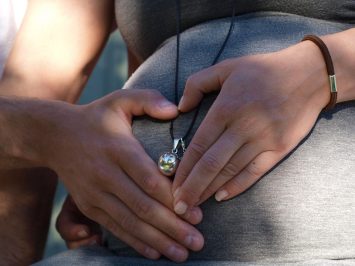 When you notice any changes to your skin, it is recommended you visit a skin and mole specialist to have the area assessed. However, during pregnancy, hormones can cause differences to moles and freckles, and understanding what is normal and what isn’t can be difficult.
When you notice any changes to your skin, it is recommended you visit a skin and mole specialist to have the area assessed. However, during pregnancy, hormones can cause differences to moles and freckles, and understanding what is normal and what isn’t can be difficult.
Here is a rundown on what pigmentation changes to expect…when you are expecting.
Melanocytes are skin cells which produce melanin. Simply put, melanin is colour pigment and when clusters of melanocytes form into a group, it becomes a mole. You can be born with moles, or they can be a result of exposure to the sun. Most moles appear before the age of 20 but can still develop or change over a person’s lifetime. These can be potentially dangerous and may need to be removed if they are flagged as a risk of skin cancer.
Freckles are slightly different, while they are a sign of sun damage their occurrence usually depends on your skin type. Freckles do not lead to cancer and are often seen in those with fairer skin.
When you are pregnant, it is still important to care for your skin and take the time to implement sun protection measures. Hormonal changes can lead to existing moles becoming darker or growing in size and these are usually harmless. New areas of pigmentation may occur, and these may or may not disappear once the baby is born.
Common areas for change include the face, breasts, thighs and armpits. While it is to be expected during pregnancy there will be some pigmentation alterations, it doesn’t mean you should be complacent as there still may be a risk of skin cancer.
When it comes to moles, there are a few warning signs to be aware of. Common moles generally have even pigmentation, a smooth surface and distinct edges.
Potentially dangerous moles which can lead to melanoma could be large in size, have an uneven surface, colour variations and blurred edges. In addition, keep an eye out for any bleeding, itching or flaking.
Early detection of skin cancer and melanoma can lead to a higher rate of treatment being successful. In Australia, it is estimated there will be 14,320 incidents of melanoma diagnosed with 8,653 males and 5,667 females thrown in the mix. Approximately 1 in 17 people will be diagnosed with melanoma in their lifetime, making it the 4th most common type of cancer in this country. With this in mind, all Australians need to be proactive when it comes to protecting their skin. Minor changes during pregnancy shouldn’t be cause for alarm, but if you are concerned it is best to check with a skincare specialist.
Regular skin checks combined with self-monitoring and adequate sun protection are the best way to reduce the risk of skin cancer. During pregnancy these good habits shouldn’t change, and it is always better to have irregularities checked for your peace of mind.
Please contact us if you would like to book in for a skin and mole check, we have 9 convenient locations throughout Perth.
With multiple locations throughout Perth and the South West there is a clinic near you!